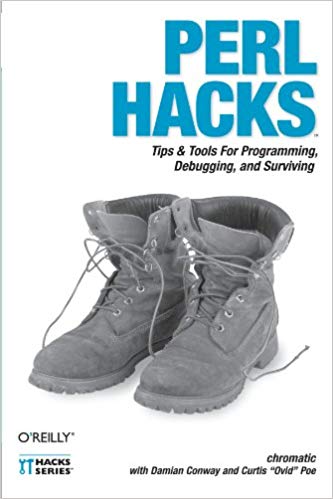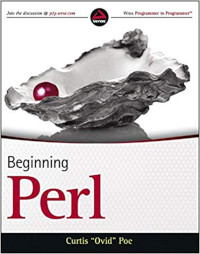This is more of me sharing tidbits of my life so that my family can know more about my past. I don’t want to be the enigma that is my father.
The year was 1978. I was eleven years old. My family was living in a run-down complex of duplexes in Schertz, Texas, and my only friends in the complex were the McClouds. They were a couple of boys, one my age and one slightly older. They were the Platonic ideal of “juvenile delinquent” and my mother didn’t like me playing with them, but there weren’t many children in the complex and she wasn’t home at the moment.
We were playing tag and I was running from the younger McCloud, desperate to not be tagged “it.” He was chasing after me because, as the least athletic, I was the natural target. I was skinny, but I was clever. I was running towards the ivy-covered chain-link fence in our back yard. I was betting that if I could jump that fence, he would chase an easier target. As I grabbed the top rail, I vaulted and soared over the fence perfectly. I also felt a wasp nest beneath the leaves crush under my hands.

Despite not seeing it, I knew instantly what it was. I can’t convey the visceral terror that I felt at that moment. I went from being the least athletic to the most as I ran for my life. The wasps, meanwhile, hastily convened a meeting to discuss how to redress such a gross violation of their sovereignty and decided to do what wasps do. I was right to run.
As one of them reached me and stung my arm, I fell to the ground, screaming as much from terror as from pain. And I knew with a dead certainty that the wasps would be swarming over me, stinging me again and again. What happened was far worse.
The younger McCloud had also vaulted the fence. He ran up and kicked me, screaming “you’re it” as he ran off. It was not a good day.
If memory serves (and being almost five decades ago, it most certainly does not), I was only stung once, but that, and feeling the wasp nest crush under my hand, was enough to instill a deep, lifelong terror of them.
Fast forward a few years and I was spending summers on Alvin Wittig’s farm. He was a close friend of my mother and Alvin and his father were happy to have me spend a few weeks there. I’d read decades-old copies of Reader’s Digest that his father kept on a bookshelf, sometimes marveling that an article written in the 1950s would be reprinted decades later, but with a new author’s name and the dates and times updated. I’d help Alvin herd cattle. I’d mess around in his tool shop. I’d ride a demon creature from Hell, a pony named Queeny, he had rescued from a family that treated it poorly. To this day, I’m sure science has equines wrong. They’re actually hivemind creatures, all of them networked together to communicate a shared desire to kill me. Queeny used to cheerfully do a “stop-drop-and-roll” in rocky fields if I tried to ride her. She’d buck and jump and rub against trees to get me off her. Alvin laughed.
Other equines had similar attitudes towards me. The gentlest nags in the world would take off at a gallop if I mounted them, but we finally reached a compromise: I agreed not to ride them and they agreed to stop trying to kill me. My daughter loves these demon creatures from hell. She takes horse-riding lessons while I watch, with a fixed smile on my face, awaiting the moment the horses realize she’s my daughter. Fortunately, the horses are too stupid to make the connection.
Where were we? Oh yes, wasps!
No, not yet.
Alvin was also a beekeeper. To me, bees were little short of thalidomide-baby wasps, runty bullies whose only saving grace is that they would die if they stung me. There were always plenty of bees flying around Alvin’s farm and I’d swat at them and Alvin would patiently explain to me that if I left them alone, they’d leave me alone. He’d be explaining this to me, with tenderness and affection, as he’d remove yet another bee stinger from my skin. Alvin, requiescet in pace, was a good man.
Alvin would show me how to smoke the hive, remove the honeycomb, cut off the top layer and spin it in a centrifuge to remove the honey. Then he’d cut off a piece of honeycomb for me to enjoy like bubblegum. I never liked honey, but I never told Alvin that. Eventually, I got the point where I’d rest my hand at the entrance to the hives, the bees crawling all over me while they made their way in and out. They never stung me again and I found a strange sort of peace, watching this erstwhile terror go about the business of living.
Fast forward 20 years later and I found myself a barista, working a beach event where I was managing other baristas serving overpriced coffee to tourists on an Oregon beach and when the bees started swarming, our customers ran away screaming, frantically batting at the bees. I instructed my staff to start pouring circles of vanilla syrup onto paper plates and setting them off to one side. The bees happily swarmed the plates, a bobbing collar of lace absorbing the sugar. They were beautiful. When the bees would swarm again, I’d call out, “time to feed the bees,” and they’d pour more syrup for them, keeping the tourists safe from nature.
But wasps. Fuck them.
Today, I live with my wife and daughter in a house in the southeast corner of France, about 45 minutes from the Italian border. I’m blessed with a wonderful family, a paradise to live in, and wasps. Did I say, “fuck wasps”? It bears repeating.
We live in the countryside. You might even say in a forest. We like to eat outside, but this is a siren call to the wasps. Last year, we’d frequently find ourselves running inside when the wasps muscled in, delighting in the smell of our barbecue and the meat that they crave. The bees would show up, too, but they didn’t bother me as much any more. But the wasps? Fuck wasps.
I hunted for their hives to no avail. We set up a string of wasp traps around our home, killing many of these foul, evil beasts, but not stopping the invasion. There was a war on and the dominant species on the planet was losing it.
The winter bought us some respite, but thanks to the never-ending wonder of climate change, France experienced an unusually light winter. When the leaves fell last winter, we found two huge wasp nests the size of basketballs, several stories above the ground in tall trees. I wasn’t worried because those nests were dead. I was wrong. The queens that should have died in the frost did not.
This year, 2022, is being called The Year of the Wasp .
Due to the heatwave, we’ve been leaving the windows of our home open. The wasps are now coming in for cat food. And heaven help us if we try to cook anything because the battle ensues. On my best day, I killed nine wasps. Then I went out and refilled six wasp traps with the sweet fluid that leads them to their well-deserved deaths. The wasps traps are filled with dead wasps, but refilling them is a challenge because they’re often filled with live wasps. And more keep coming.
We’re losing this war. We need to a different approach.
We could just refuse to eat outside, but we’re not giving up our quality of life for damned wasps. Even if we did eat inside, we’d have to close all of the windows. Not an option in this heat. Call exterminators and ask them to scour the forest for wasp nests? I don’t think so.
My wife came up with a different approach. Why kill the wasps? They have a right to live, too. She decided to try a peace offering. We offer a bit of food for the wasps, away from where we’re eating. After they swarm the food, we sit down to eat in relative peace.
So far, it mostly works. Our hot war became a cold war and is becoming a détente. We still have wasps dive-bombing our plates from time to time, but we’re learning to be at peace with them. It’s not easy as they still scare the hell out of the eleven-year-old boy in me, but all of us are getting more used to them. We’re becoming a wasp sanctuary.
My instincts tell me to kill them or run. My conscience tells me we’re doing the right thing.

Last night, we ate sushi. We put aside a little platter of raw fish for the wasps and left them alone. When they settled down to eat, we ate our meal in peace.
Be safe, little wasps.


